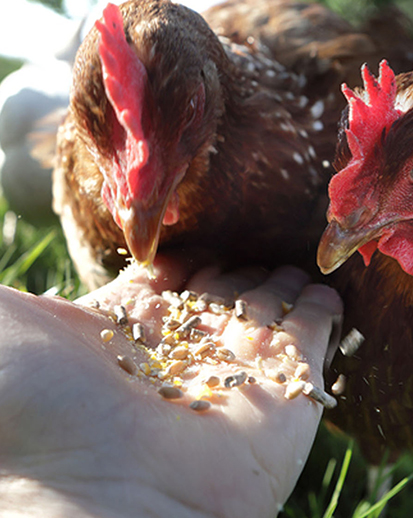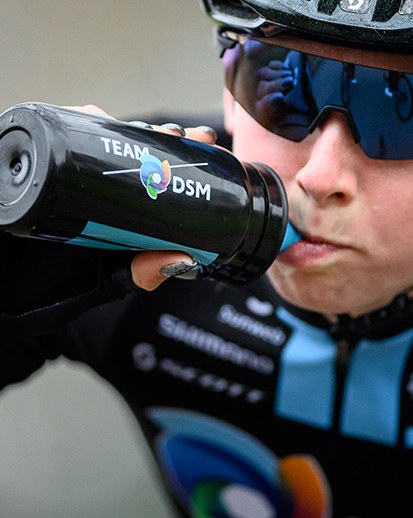DSM Food Specialties
About DSM Food Specialties
DSM Food Specialties is a leading global supplier of specialty food enzymes, cultures, probiotics, bio-preservation, hydrocolloids, sugar reduction, and savory taste solutions to customers in the food & beverage industry in dairy, baking, beverages, and savory. Our ingredients and solutions are widely used to create a broad range of food products, from grocery favorites such as yogurt, cheese and soups to specialized products including gluten-free bread and beer, plant-based meat alternatives and dairy alternatives, lactose-free milk, and sugar-reduced foods and beverages.
Demand for our products is driven by five main market trends: enhanced taste experience; improved health and wellness; sugar reduction; more efficient and sustainable production; and reduction of food loss and waste. At the center of it all is the consumer, who increasingly seeks food that is both healthy and eco-friendly.
With over 150 years’ experience in biosciences and fermentation, we aim to enable better food for everyone, helping to make existing diets healthier and more sustainable, and giving growing numbers of people around the world access to affordable, quality food.
DSM Food Specialties performance
Food Specialties delivered a good performance (+4%) with an overall neutral effect from COVID-19 on sales. Demand for especially savory and dairy was good throughout the year, while demand for hydrocolloids was soft.
CSK acquired at the end of 2019, strengthened Food Specialties’ portfolio of taste, texture and bio-preservation solutions for semi-hard cheeses. CSK recorded a strong performance in 2020, completing the integration ahead of schedule, delivering €69 million of sales and a total Adjusted EBITDA of €16 million, well ahead of the business plan for the initial year.
Integration of CSK’s specialty dairy solutions business
In dairy, our largest segment in food & beverages, the integration of CSK’s specialty dairy solutions business, acquired at the end of 2019, progressed well. The synergies generated exceeded our expectations regarding both top- and bottom-line performance. This highly complementary acquisition has allowed us to add a state-of-the-art dairy cultures production facility in the strategically important EMEA region; to broaden our portfolio of specialty ingredients; and to further deepen our application expertise. This strengthens our ability to deliver solutions tailored to the precise needs of cheese and fresh dairy producers worldwide.
Fermentative Stevia
The Avansya partnership with Cargill for fermentative Stevia had a good first full year of operation after the commercial-scale fermentation facility came on stream at the end of 2019. Consumer end-products including the EVERSWEET® sweetener were launched successfully across multiple segments by our customers in our initial markets, with many more product development projects underway.
Baking and Beverages
In baking, we saw increased interest in including omega-3 fatty acids in bread and baked goods. Meanwhile the new baking enzymes introduced in 2019 to help customers extend freshness and reduce food waste garnered a prestigious Ringier Technology Innovation Award.
Production efficiency improvements and a reduced environmental footprint remain major drivers in the beverages sector. We introduced a new enzymatic solution to help brewers differentiate by means of new flavors as well as to increase brewing flexibility and capacity through increased use of locally available adjuncts.
Strong demand in savory taste ingredients and growing market for plant-based, vegetarian and vegan options
There was strong demand for our savory taste ingredients as consumers, especially in Asia, turned to flavor-filled store-cupboard essentials such as noodles and soups.
The market for plant-based, vegetarian and vegan options alongside traditional meat and dairy choices is booming. Increasing numbers of consumers are adopting a ‘flexitarian’ approach to mealtimes. We launched comprehensive portfolios of integrated solutions for both meat and dairy alternatives, leveraging the full range of our capabilities across taste and flavor solutions including sodium and sugar reduction, texturizing hydrocolloids, vitamins and micronutrients, and enzymatic processing aids. For more information, see the plant-based case study on this topic.
Partnership with Avril to bring CanolaPRO™ to market
Our innovative, plant-based protein CanolaPRO™ also provides an excellent basis for meat and dairy alternatives, offering versatile functional benefits in terms of taste and texture, as well as being a nutritionally complete protein. In 2020, we established the Olatein joint venture together with Avril to produce and bring CanolaPRO™ to market, with commercial introduction expected in 2022. This partnership draws on the unique know-how of both partners, including our patented process and technology for extracting high-quality protein from canola meal and Avril’s 35-year legacy in oilseed and protein crop production. Construction of a state-of-the-art production facility is underway in Dieppe (France).
Hydrocolloids demand impacted by COVID-19
Another growth platform is hydrocolloids — thickeners and stabilizers that dissolve, disperse or swell in water to provide a broad range of important functionalities and physical attributes including gelling, texture, mouthfeel, viscosity and suspension. Our hydrocolloids are primarily delivered in the form of plant-extracted pectin and fermentation-derived bio-gums. Both are used as gelling and stabilizing agents in a variety of foods and beverages. Demand for our hydrocolloids was impacted in 2020 by a drop in overall demand for on-the-go foods and beverages as a result of the COVID-19 pandemic. Interest grew meanwhile in their application in meat and dairy alternatives.







